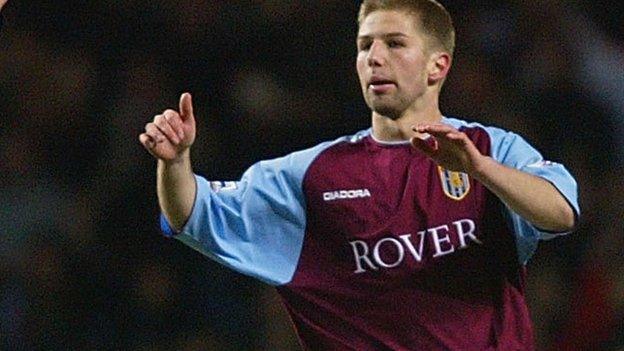Homophobia in sport: FA chairman Greg Clarke's views 'old-fashioned' - Keegan Hirst
- Published
5 live polled more than 4,000 people into attitudes about homophobia in sport
Football Association chairman Greg Clarke's views on gay footballers coming out are "negative and old-fashioned", says Britain's first openly gay rugby league player Keegan Hirst.
Clarke said he "wouldn't recommend" a player coming out "at the moment".
He added they would be "taking a risk" of "vile abuse" and could not yet be offered the "required protection".
A BBC Radio 5 live survey found 8% of football fans would stop watching their team if they signed a gay player.
Clarke told 5 live on Wednesday he stood by his "personal view" that abuse from a "small minority on the terraces" must be solved before any gay footballers come out.
He said the FA needs to "redouble its efforts to provide that safe space", which he hoped to achieve in a "year or two".
But Hirst, 28, who has signed for Super League side Wakefield, told the BBC:, external "What he said was that he didn't think it was the right time for a footballer to come out, which begs the question: when is the right time?
Former footballer Chris Sutton says homophobic fans are "moronic"
Hirst's previous club Batley Bulldogs banned a fan in September, for sending homophobic tweets to Hirst and his friend, Coronation Street actor Anthony Cotton.
He added: "Eventually someone is going to take the plunge and I think there are lots of things in place for footballers to get the support they need from the club, supporters' bodies and social media.
"So what he is saying is pretty negative and a bit old-fashioned.
"Maybe if he got out on terraces a bit more and saw what was really going on, he wouldn't make comments like that. "
Last week Clarke told MPs he was "cautious" of encouraging a player to come out because they may suffer "significant abuse" from fans.
He said he was "personally ashamed" that players do not feel safe to come out.
Ex-England winger Chris Waddle agreed with Clarke's view. Speaking to BBC Radio 5 live sport, he said: "It's ignorance. You can go to any ground - whether it is 75,000 or 700 - and there are going to be idiots in football. We always know that, so unfortunately, I totally agree, it's not right yet to come out.
"It is just the mentality of the game. I'm not saying it is everyone - it's just a small minority - but until they clean football up, which I don't think will happen, does that player need that sort of abuse? No. I think it will be the last sport where it comes out."
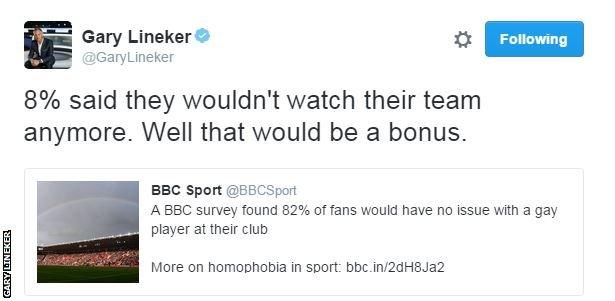
Match of the Day presenter and ex-England striker Gary Lineker tweeted his views on the issue
In an online survey of more than 4,000 people commissioned by 5 live's Afternoon Edition and carried out by ComRes, 82% of sports fans said they would have no issue with a gay player playing for their club.
And 47% of all sports fans - 50% of football supporters - say they have heard homophobic abuse at matches, while 71% of football fans said clubs should do more to educate fans about homophobia.
An FA spokesman said it "welcomed the statistics" as a "sense check" on homophobia.
It said it takes "strong action" against anyone found guilty of homophobic, biphobic or transphobic abuse.
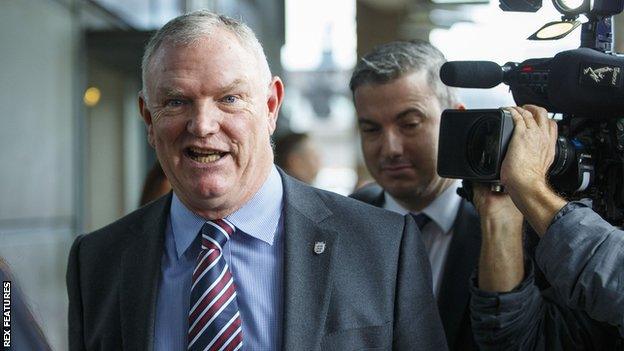
Greg Clarke was questioned by members of the Culture, Media and Sport Committee last week
'Homophobia has to be tackled the same as racism'
Keegan Hirst, who was guest editor on BBC Radio 5 live's Afternoon Edition on Wednesday.
There are 4,000 members of the Professional Footballers' Association. Apparently one in 10 people are gay, so maths dictates that 400 footballers are gay. To have not one come out is a big question. It is the last taboo.
You can get away with homophobia. For racism we have campaigns, such as Kick It Out., external Racism is zero tolerance. Homophobia needs to be tackled with the same verve. Prejudice is prejudice.
The by-product of having an openly gay sportsman and woman is becoming a role model for younger people. It is about breaking down stereotypes - all things that leads towards equality in society, not just in sport. You have to remember sport mirrors society.
It is down to the FA. In 2010, the Rugby Football League fined Castleford £40,000, external for homophobic abuse at Crusaders winger Gareth Thomas. In rugby league, that money can pay a player's wage for a year.
In football, you are talking millions in relative terms. Suddenly there is a zero-tolerance policy. Money is a big issue and it's a business at the end of the day.
Keegan Hirst: Being gay in rugby league
- Published26 October 2016
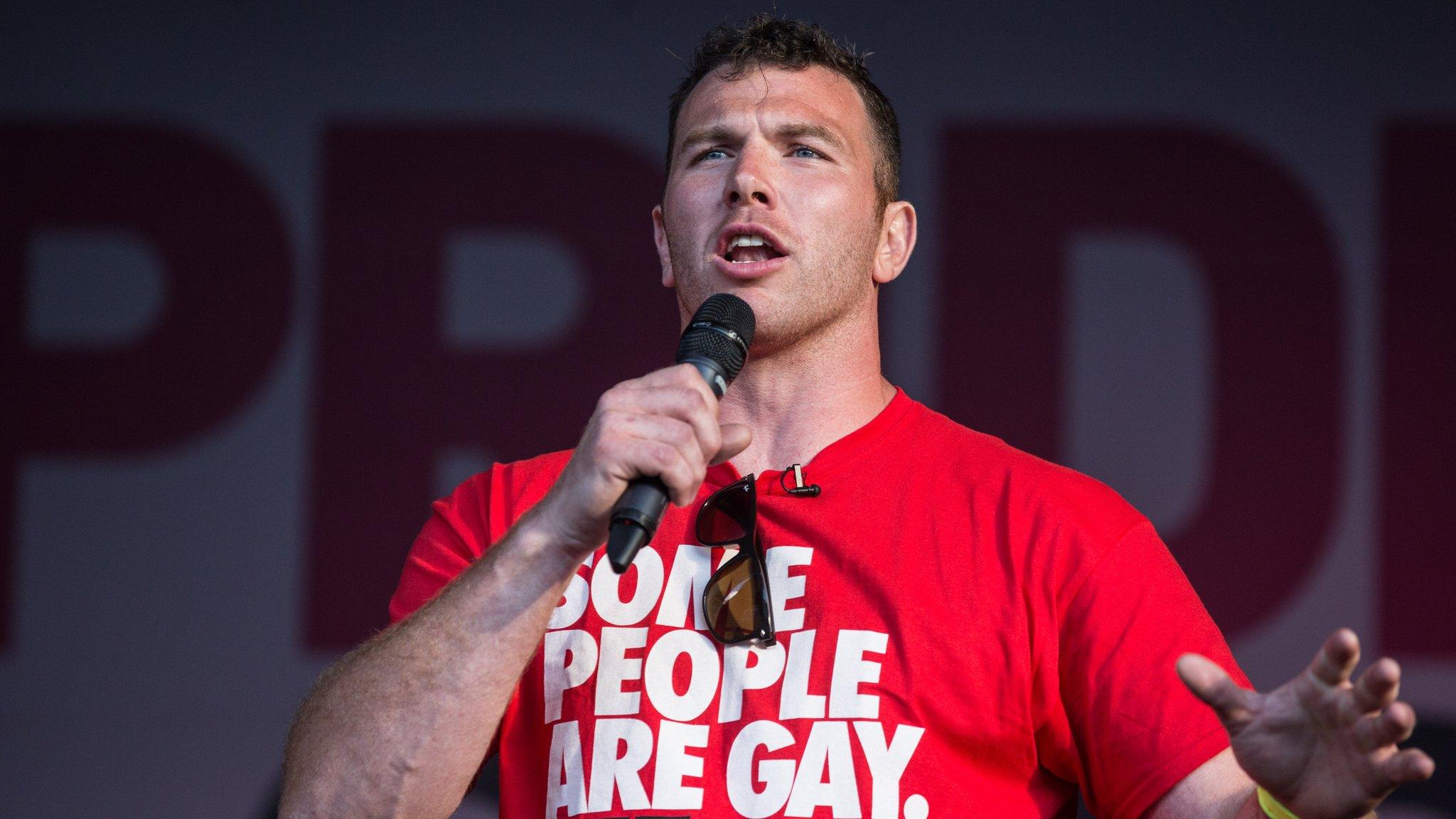
- Published17 October 2016
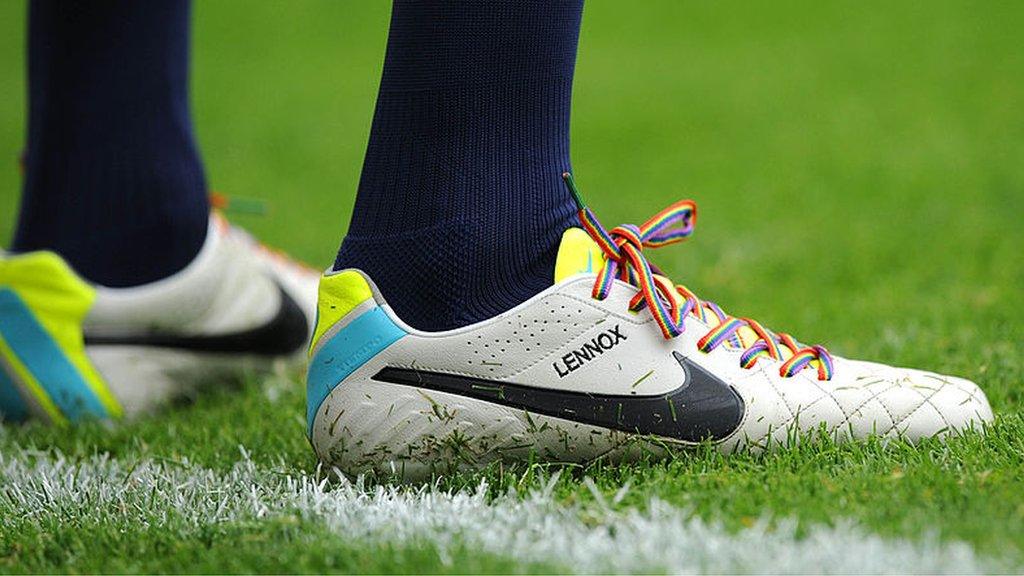
- Attribution
- Published5 September 2016
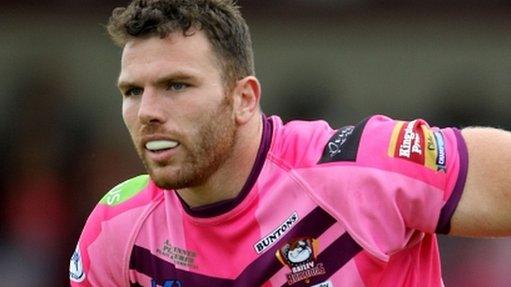
- Published8 January 2014
